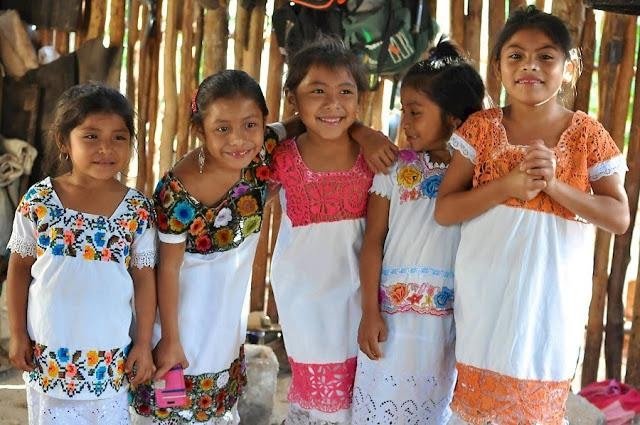Maya or Mayan?
Many people misuse the terms “Mayan” and “Maya”, and even sometimes “Mayas”, assuming that it’s as simple as “Maya” is a singular noun, “Mayas” a plural noun, and “Mayan” an adjective. But which is correct when referring to the ancient civilization, the modern people and their languages?The Maya culture and ancient civilization stretches across southeastern Mexico and Central America, including Guatemala, Belize, El Salvador, and Honduras. The word “Maya” itself comes from the name of the ancient Yucatan city of Mayapan, the last capital of the Maya Kingdom in the Post-Classic Period (950-1524 CE).
In the late sixteenth century the Spanish attacked and conquered parts of Yucatan including the then capital. Derived from Mayapan the modern usage of the word “Maya” was born, to describe local people, places and the indigenous language.So how should we use it today? We’ve all been quick to use “Mayan” as an adjective, but this is actually incorrect. Here in the Yucatan, Mexico we use “Maya” as a singular noun, plural noun, adjective and to denote the name of the language that many modern Maya and residents of Felipe Carrillo Puerto still speak today.
As a singular noun: He/she is Maya.
As a plural noun: They are Maya.
As an adjective: with the exception of talking about the language spoken, which we’ll get to in a minute, you’d say Maya culture, Maya ruins, Maya astronomy, Maya calendar, Maya clothing, Maya folklore, Maya food, Maya hairstyle, Maya heritage, Maya ritual, etc.
The name of the spoken language: this is a little bit more complicated. “Mayan” can refer to the family of around 30 languages spoken by the Maya. However, there is one indigenous language for which you should still use the name “Maya”! The native speakers of Yucatec Maya, on the Yucatan Peninsula, Mexico, where Na’atik is based call their language Maya.
In conclusion, for the most part, especially when visiting Na’atik, the correct term to use is Maya. However, if you explore Guatemala, Belize, El Salvador or Honduras you may hear their indigenous language referred to as Mayan, but their culture, food and identity will always be Maya.

